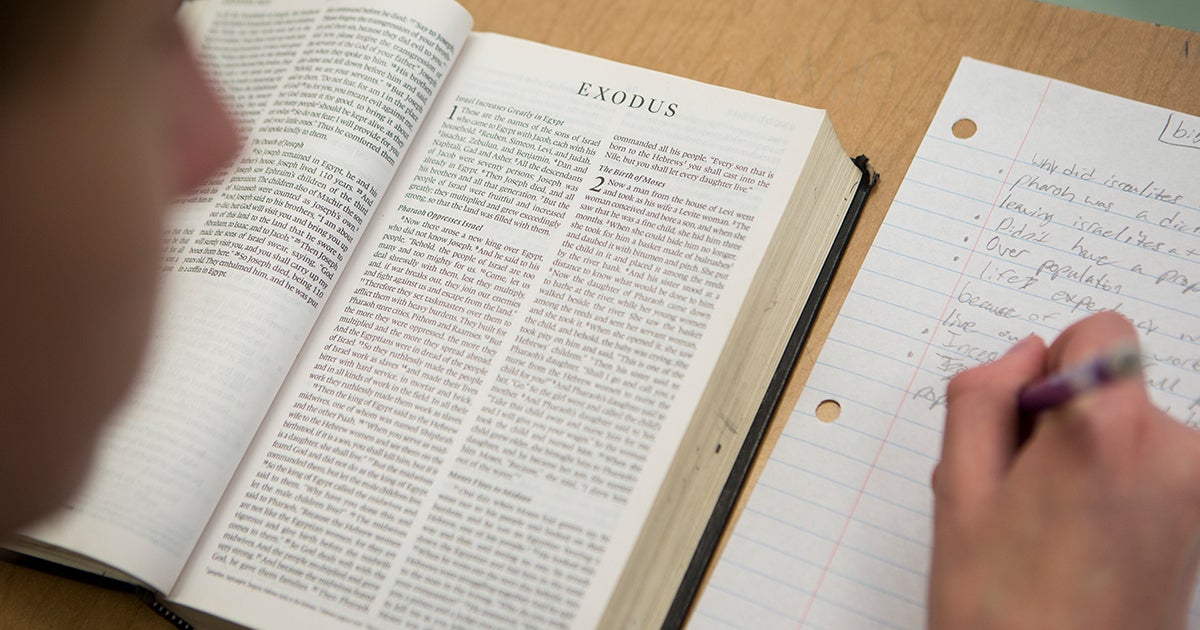
by Jorge Gomez • 5 min read
The U.S. Supreme Court has made it clear that religious schools, parents and students must be treated fairly. Many decisions in recent years held that government can’t discriminate against them just because they’re religious.
But there’s still a lot of work to do, according to a recent study by the Manhattan Institute.
The title of their report says it all: “Unconstitutional Religious Discrimination Runs Rampant in State Programs.”
It points to several major Supreme Court rulings that have restored the rights of religious schools and protected faith-based education programs across America. Those include Trinity Lutheran Church v. Comer and Espinoza v. Montana Department of Revenue and First Liberty’s Treat Children Fairly case, Carson v. Makin. Combined, these “emphasize that the First Amendment demands the equal treatment of religious institutions and believers.”
“Unfortunately, the import of these decisions is not yet universally reflected in government policies on the ground,” say Manhattan Institute Fellows Nicole S. Garnett and Tim Rosenberg.
They claim that “unnecessary and unconstitutional religious discrimination remains” and “many dozens, likely even hundreds, of public programs at all levels of government” still refuse to extend otherwise available benefits to religious organizations.
Their research points to publicly funded pre-K education as an example. States like Oregon outright limit participation in its universal pre-K program to “nonsectarian” private providers. Some states do allow faith-based schools to participate in public funding for pre-K. But this “benefit” may not be a benefit at all in some states. Georgia, Alabama, California, New Mexico, Arkansas and Wisconsin prohibit all religious content in their education programs.
“The programs highlighted in this report are likely only the tip of an unconstitutional iceberg,” Garnett and Rosenberg conclude.
From California to Maine, Some States Really Seem to Dislike Religious Education
Why do these unconstitutional restrictions stay on the books? As the report suggests, “in some cases, hostile government officials may be intentionally disregarding the Court’s decisions.”
That’s seems to be what’s happening in several First Liberty cases.
Look at the way California is mistreating and illegally discriminating against three of our clients, the Woolard, Gonzales, and Dodson families. They are being told they CAN’T use funds provided by their charter schools to purchase curricula or materials that are religious—or, in some cases, even mention religion in their assignments. One of our clients was expelled from a charter school because they wanted to select a religious curriculum.
We filed a federal lawsuit last fall against the California Department of Education. We’re taking this to court to make sure state officials follow the law and Supreme Court precedent.
Religious schools in Maine are facing similar discrimination. Officials in that state won’t let our client—Bangor Christian School—participate in the state tuition program unless it compromises its religious beliefs. That case is also pending in federal court.
Our legal team is helping defend the nation’s first religious charter school located in Oklahoma. Radical activists—as well as high-ranking state leaders—sued. Why? Because they think it was unconstitutional for the Oklahoma Statewide Virtual Charter School Board to approve St. Isidore of Seville Catholic Virtual School and will be unconstitutional for the Oklahoma State Department of Education to provide funding. We asked the court to dismiss the lawsuit.
What’s the takeaway? There’s no doubt we’re winning at a historic rate. Religious freedom is on an incredible winning streak.
But we still have a lot to do. The fight is far from over.
Opponents of religious liberty appear more emboldened than ever. No matter how many times they get schooled on the Constitution, they just refuse to follow the Supreme Court’s direction. Frankly, the fact that we’re having to fight so many of these cases tells us they don’t really care what the nation’s highest court has said. So, we have to keep fighting for what is right.
Religious families and schools are confronting some very serious problems and discrimination. And these legal battles are taking place all across the country. There are so many cases we still need to win—and we need your ongoing support to achieve more victories.
These are big cases with huge opportunities to impact the future. But as you know, fighting on multiple fronts is costly. Taking on state officials in court demands a lot of resources. The only way we can win is with you on our side.
From California, to Oklahoma, Maine and across the country, religious families are counting on us. You’ve helped us win in court before. Will you help us do it again?